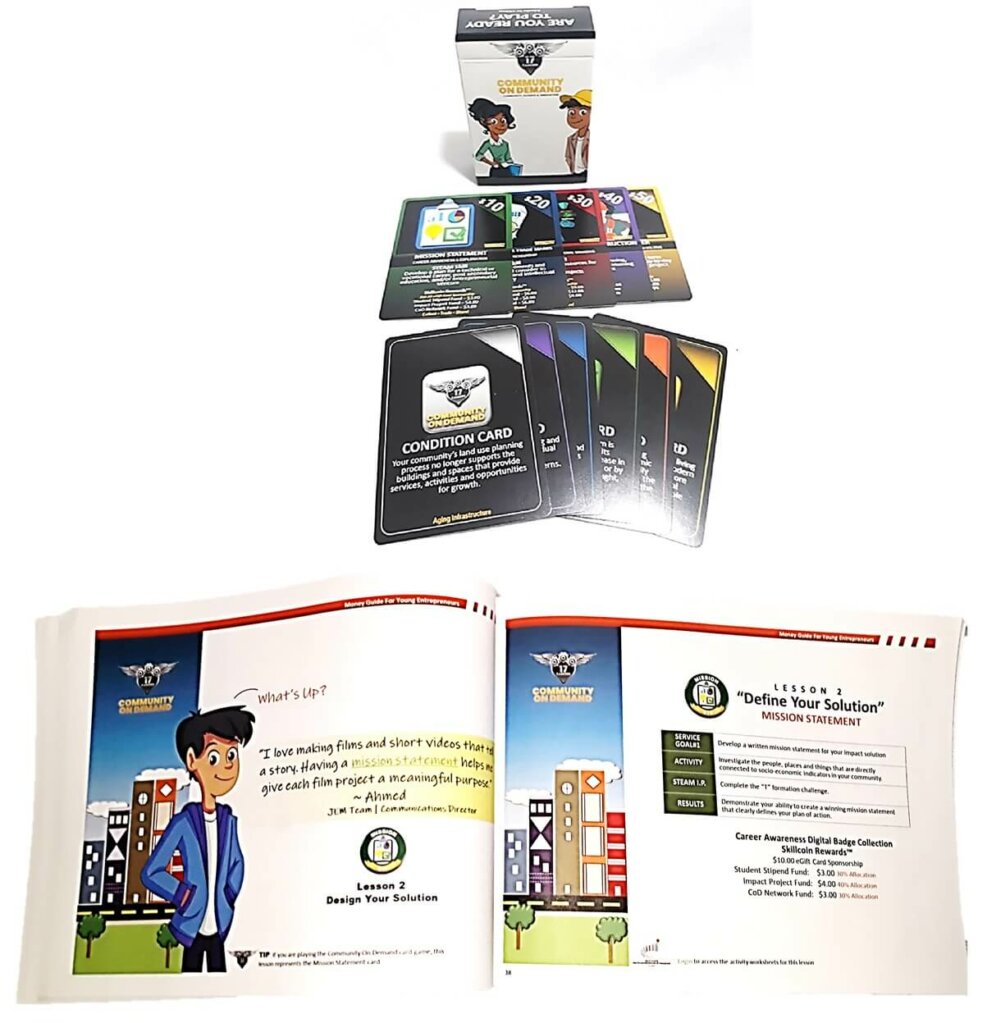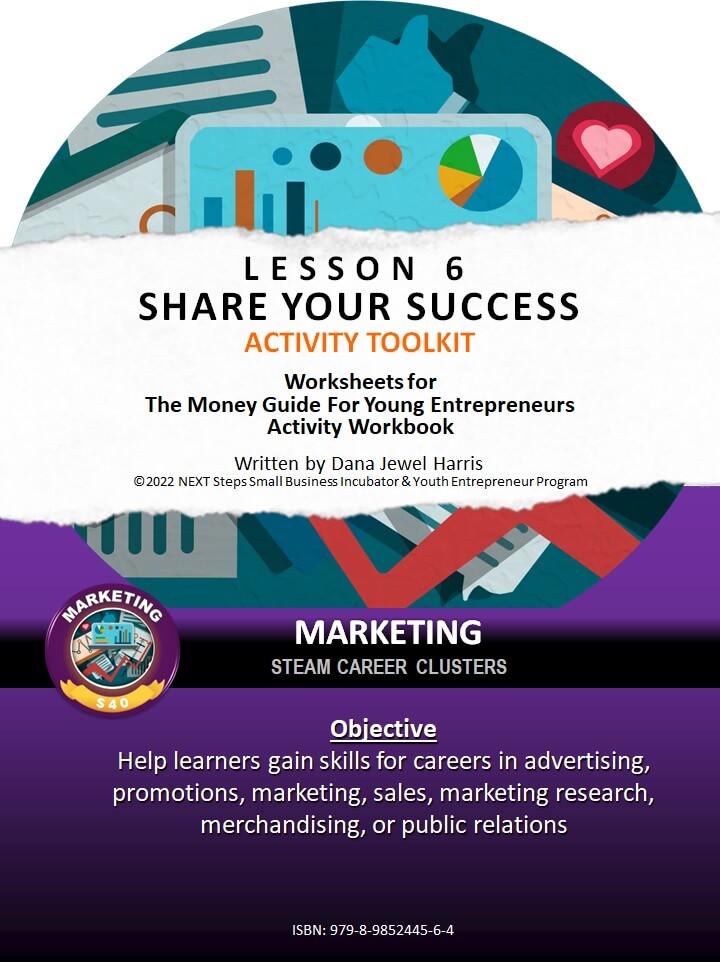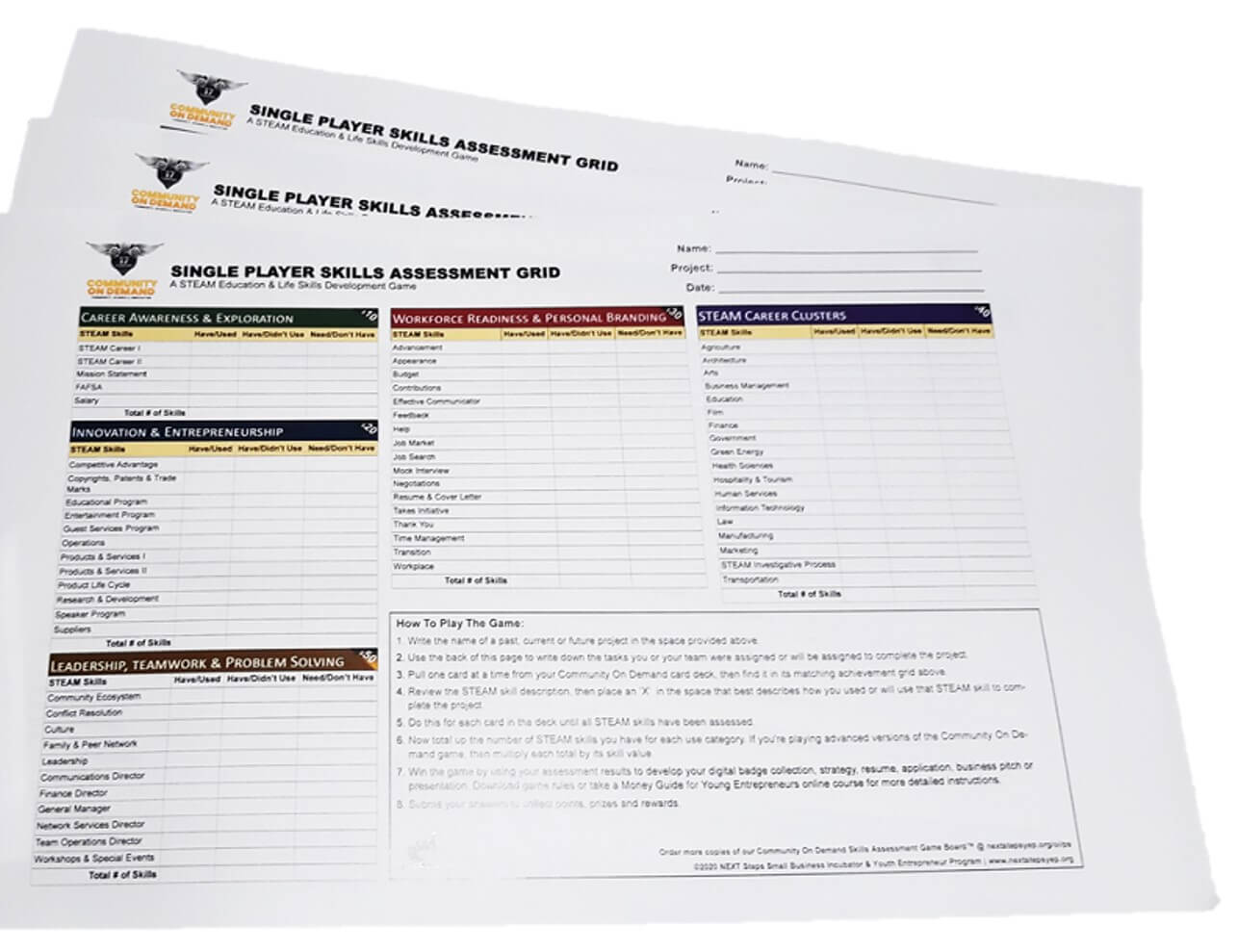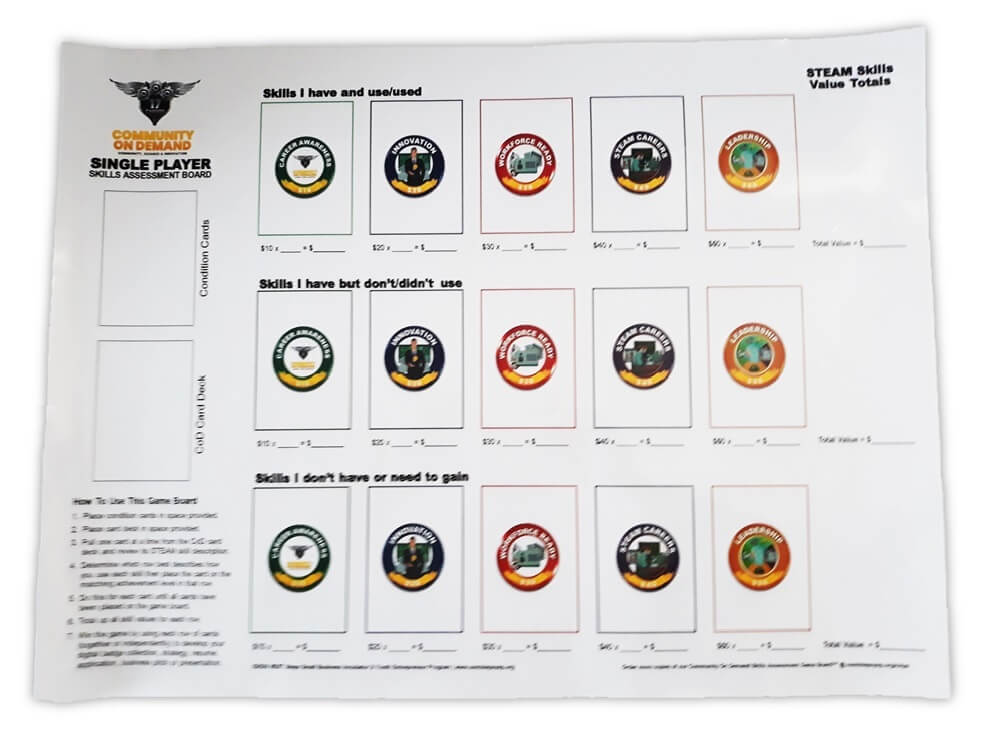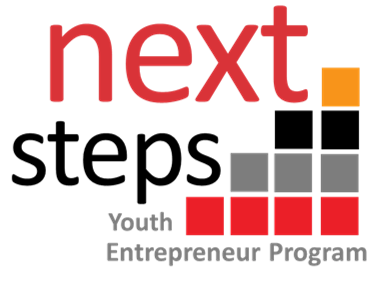The NEXT Steps Online Training Academy (NSOTA)


Follow Us!
Table of Contents
The Community On Demand™ Learning Management System
Our Digital eLearning Platform
The NEXT Steps Online Training Academy (NSOTA) is the digital infrastructure that houses the Community On Demand™ Learning Management System. It’s main goal is to promote, manage and support the online and off-line instruction (in self-paced and guided formats) for all business, curriculum and leadership development activities.
NSOTA uses four instructional models to help learners strengthen their high-demand employability skills across 17 Career & Technical Education STEAM Career Clusters. These models ensure maximum engagement as learners participate in online courses, leadership development workshops, service-learning projects, special events and crowdfunding campaigns.
Completion of these instructional models reward learners for using their skills to solve real-world challenges, increasing the value of their contributions to society, and sustaining the Community On Demand™ Creative Economy.

Current Trends In
Serious Game Play
The growth rate for serious games in the higher education and tertiary segment is a healthy 15.4%.
The Money Guide for Young Entrepreneurs
Offers eight courses to help learners create winning business strategies, build Junior Executive Management (JEM) Teams, develop successful impact solutions, and complete the Money Guide for Young Entrepreneurs Activity Workbook
Helps educators integrate Community On Demand™ into their existing CTE pathway courses, work-based learning experiences and/or college and career readiness training programs
Provides industry-recognized digital credentials that verify a learners' demonstrated knowledge, skills, capabilities and competencies
Course License
Unlimited Number of Enrolled Students
Custom Programs
Work-Based Learning Experiences
Consulting
Guided Instruction & Business Support Services
Membership
Join our Local Contributor Network
The Money Guide for Young Entrepreneurs Activity Workbook & Online Course Series
Leadership Development For Youth & Young Adults
Money Guide for Young Entrepreneurs Activity Workbook
The Money Guide for Young Entrepreneurs is the official textbook for the Community On Demand Card Game Curriculum and provides eight easy lessons to help young innovators assess their STEAM skills, build teams, create career-building opportunities, and launch new business ventures.
The Money Guide for Young Entrepreneurs guides young innovators through the eight steps required to create a winning business plan. This self-paced 21st Century STEAM education curriculum that uses financial literacy, blockchain technology, entertainment and entrepreneurship to strengthen the employability skills of STEAM educators, lifelong learners, young innovators and entrepreneurs.
The Money Guide for Young Entrepreneurs provides fun, interactive lessons and activity worksheets to teach learners of all ages how to:
- Create and implement an impact solution
- Demonstrate the value of their STEAM skills
- Build a team
- Promote and brand their achievements AND
- Develop a business or career-building opportunity that benefits themselves, their families, their team and their community
By completing The Money Guide for Young Entrepreneurs, learners will be able to:
- Create a digital portfolio, financial portfolio and business plan
- Demonstrate their ability to promote, brand and monetize their knowledge, special abilities, interests, STEAM skills and achievements
- Create sustainable impact solutions that benefit their communities and convert them into career-building opportunities and social enterprises.

Money Guide for Young Entrepreneurs Online Courses
The Money Guide for Young Entrepreneurs Online Course is a curriculum series that guides young innovators through the Money Guide for Young Entrepreneurs Activity Workbook. Courses provide in-depth digital visuals, audio tracks, and activity worksheets give learners a more rewarding game experience throughout the Community On Demand™ Learning Management System.
Starting with an introduction of The STEAM Investigative Process — our 21st Century version of The Scientific Method — each lesson guides learners through the eight steps required to create winning business strategies, build project management teams, and develop successful impact solutions all while strengthening their high-demand employability skills for college and career.
Money Guide for Young Entrepreneurs Activity Toolkit
NEXT Steps created the Activity Toolkit as an additional set of resources and training materials to help educators document the growth and achievements of their learners. Activity Toolkits include the Community On Demand Card Game Set (card deck, game board and 3 skills assessment worksheets per learner), and 11 Activity Worksheets for each lesson in the Money Guide for Young Entrepreneurs Activity Workbook. The Money Guide Activity Toolkit includes the following activity worksheets:
STEAM Investigative Process
STEAM IP Mapping Activity Worksheet; The STEAM Investigative Process
Explore Your Community
Community Mapping Grid; Interview Questions
Define Your Solution
Mission Statement Worksheet
Build Your Team
JEM Team Model & Nominations
Map Your Value
Digital Badge Value Grid; Cash Allocation Chart
Manage Your Assets
Time Is Money Calculator; Spend Your Time; Plan Your Work; Do The Math
Share Your Successes
Program Planning Checklist; Project Planning Checklist
Package Your Skills
STEAM Capability Report; TRENDS DataReport
Lesson Plans
The STEAM Investigative Process
Shows how learners will create a skillset that reflects the employability skills they have, use and need to create an impact solution for their community
Lesson 2. Define Your Solution
Shows how learners will develop a winning mission statement for their impact solution and work-based learning experience.
Lesson 4. Map Your Value
Shows how learners will develop and manage resources to implement their impact solution and complete their enhanced work-based learning experience.
Lesson 6. Share Your Success
Shows how learners will apply high-demand STEAM skills in marketing, advertising, sales, marketing research, merchandising and/or public relations.
Lesson 1. Explore Your Community
Shows how learners will identify the socio-economic conditions that define the health of their community's ecosystem
Lesson 3. Build Your Team
Shows how learners will demonstrate the leadership qualities, values and behaviors needed to complete their enhanced work-based learning experience
Lesson 5. Manage Your Assets
Shows how learners will demonstrate how effective time management is used to complete their impact solution and enhanced work-based learning experience
Lesson 7. Package Your Skills
Shows how learners will identify the primary factors that will lead to the success of their impact solution and enhanced work-based learning experience
Group License
Our online courses provide group leaders, educators and school administrators with access to our Group Management Dashboard so they can:
- Manage access to courses and reporting with its group.
- Manage students collectively instead of individually
- Gives teachers and organization reps access to reporting for their students
- Configure, buy, manage and report on their groups using a powerful front-end interface for reviewing, grading and approving quiz essay questions and assignments
- Add and invite users, send password reset emails, and even easily mass email all students in the group.
- Use up to five (5) reports to view progress and quiz results by user, group, or course (…even drill down into the specific answers each user chose on quizzes)
- Enroll users in their group by adding them directly, by uploading a .csv file, or by distributing enrollment keys so that users can self-register.
- Manage learner progress and download learner certificates
- Allow groups to build and buy their own curricula, add seats and courses at a later time
Help Us Build The Community On Demand™ Creative Economy
Join a group of people who care about the future and want to advance our groundbreaking advocacy, service and development to revolutionze STEAM education.
Do Better. Think BIGGER!
Knowledge Is Power
Those who know how, will always have a job.
Those who know why, will always be their boss.
Those who know what to do, determine the outcome.
Our Value-Added Skills Self-Assessments
Performance Measures for Personal & Professional Growth
Skidmore College states that value-added assessments attempt to measure student growth over time — from the time that a student enters a program until the student graduates. The most common method is pre- and post-testing.
Community On Demand™ uses its card game, skills self-assessment worksheet and game board along with the Money Guide courses and activity toolkits to help learners establish a firm benchmark on how to measure their personal and professional growth. Our game-based learning tools are especially helpful for measuring a learner’s knowledge and skillset and provides an easy way to score and statistically analyze the results.

Five Achievement Domains
Success within Community On Demand™ is measured through values assigned to each skill within five achievement domains. Our achievement domains represent the 63 high-demand employability skills and 6 socio-economic conditions that fuel the digital learning ecosystem of the Community On Demand™ Creative Economy. The five color-coded achievement domains help learners quickly determine their readiness for college and career by a visual mapping process that defines, measures, builds and names their high-demand employability skills.

$10.00 CV
Career Awareness & Exploration
(5 Skills)
Helps learners identify their current level of preparedness for college and career

$20.00 CV
Innovation & Entrepreneurship
(12 Skills)
Teaches economic & business development skills
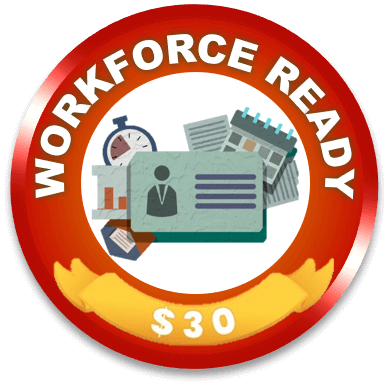
$30.00 CV
Workforce Readiness & Personal Branding
(17 Skills)
Teaches project management and job readiness skills
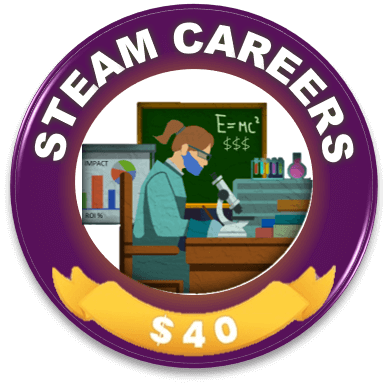
$40.00 CV
Career Awareness & Exploration
(18 Skills)
Introduces STEAM career clusters, pathways and career-building opportunities

$50.00 CV
Leadership, Teamwork & Problem-Solving
(11 Skills)
Rewards development and implementation of creative solutions and effective leadership
Skills Self-Assessment Tools
Success within Community On Demand™ is also measured through values assigned to each skill within our five achievement domains. Each skill carries a potential value (PV) based on the achievement domain it belongs to. Once used, the potential value is converted into a contribution value (CV) and is attributed to the wealth of the Community On Demand™ Creative Economy.
STEAM Career Clusters Knowledge Areas (Service Goals)
Competency Measures
Community On Demand™ measures over 27 competencies that determine the employability and market value of a learner’s skillset. Community On Demand™ learning tools help learners demonstrate “cross-cutting” competencies common to most occupations within an industry. When a learner gains one or more of these competencies, they will be rewarded with a Digital Badge & Skillcoin Rewards micro-credential that reflects their basic understanding (comprehension, awareness, or analysis) of a skill.
Agriculture, Food & Natural Resources
Pathways
Agribusiness Systems
Animal Systems
Environmental Service Systems
Food Products and Processing Systems
Natural Resources Systems
Plant Systems
Power, Structural and Technical Systems
Knowledge Areas
- Knowledge of plant and animal organisms, their tissues, cells, functions, interdependencies, and interactions with each other and the environment.
- Knowledge of techniques and equipment for planting, growing, and harvesting food products (both plant and animal) for consumption, including storage/handling techniques.
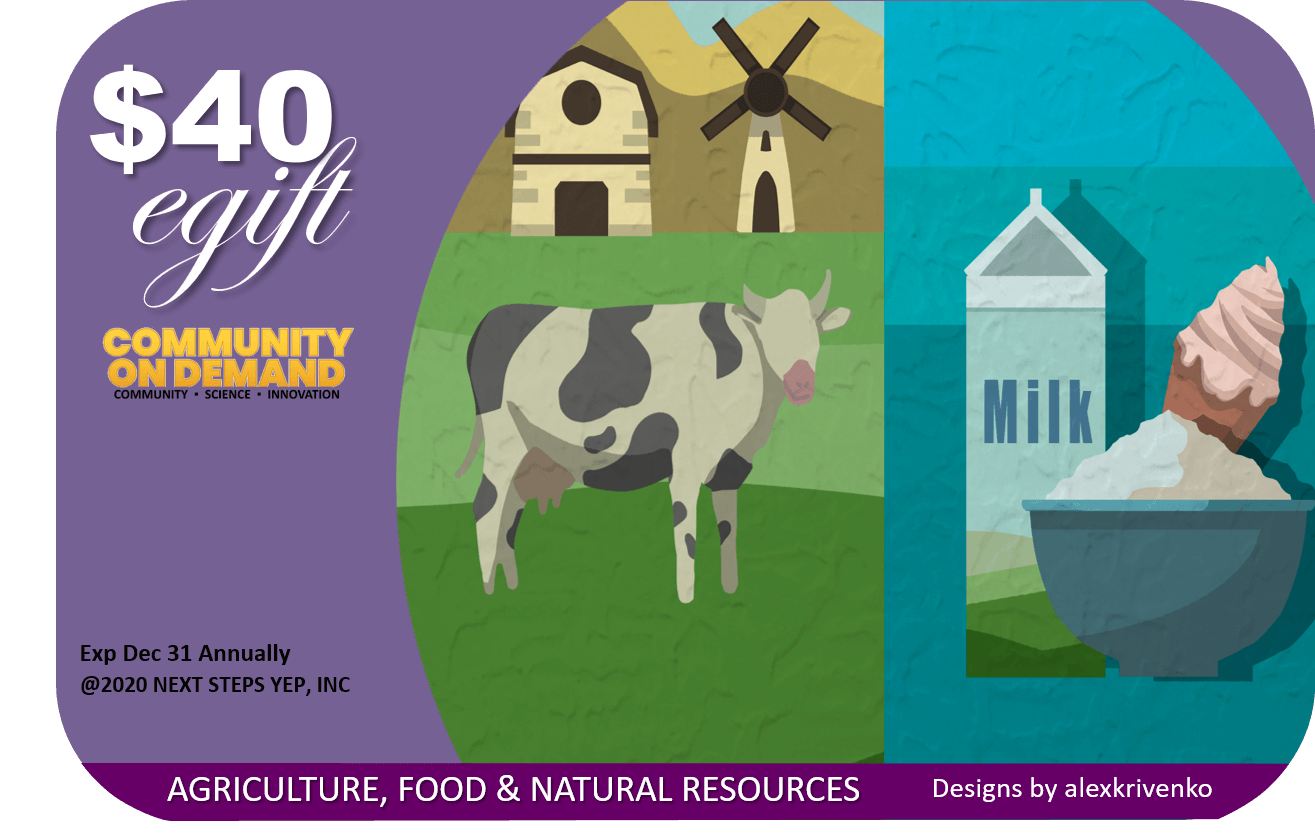
Architecture & Construction
Pathways
Construction
Design and Pre-Construction
Maintenance and Operations
Knowledge Areas
- Knowledge of materials, methods, and the tools involved in the construction or repair of houses, buildings, or other structures such as highways and roads.
- Knowledge of principles and methods for describing the features of land, sea, and air masses, including their physical characteristics, locations, interrelationships, and distribution of plant, animal, and human life.

Arts, Audio/Visual Technologies & Communications
Pathways
A/V Technology & Film
Printing Technology
Visual Arts
Performing Arts
Journalism & Broadcasting
Telecommunications
Knowledge Areas
- Knowledge of plant and animal organisms, their tissues, cells, functions, interdependencies, and interactions with each other and the environment.
- Knowledge of techniques and equipment for planting, growing, and harvesting food products (both plant and animal) for consumption, including storage/handling techniques.

Business Management & Administration
Pathways
Administrative Support
Business Information Management
General Management
Human Resources Management
Operations Management
Knowledge Areas
- Knowledge of business and management principles involved in strategic planning, resource allocation, human resources modeling, leadership technique, production methods, and coordination of people and resources.
- Knowledge of administrative and clerical procedures and systems such as word processing, managing files and records, stenography and transcription, designing forms, and other office procedures and terminology.
- Knowledge of principles and procedures for personnel recruitment, selection, training, compensation and benefits, diversity and inclusion, labor relations and negotiation, reasonable accommodations for employees with disabilities, and personnel information systems.

Education & Training
Pathways
Administration and Administrative Support
Professional Support Services
Teaching and Training
Knowledge Areas
- Knowledge of principles and methods for curriculum and training design, teaching, and instruction for individuals and groups, and the measurement of training effects. This knowledge includes addressing the training needs of individuals with disabilities and groups of one or more individuals with disabilities,
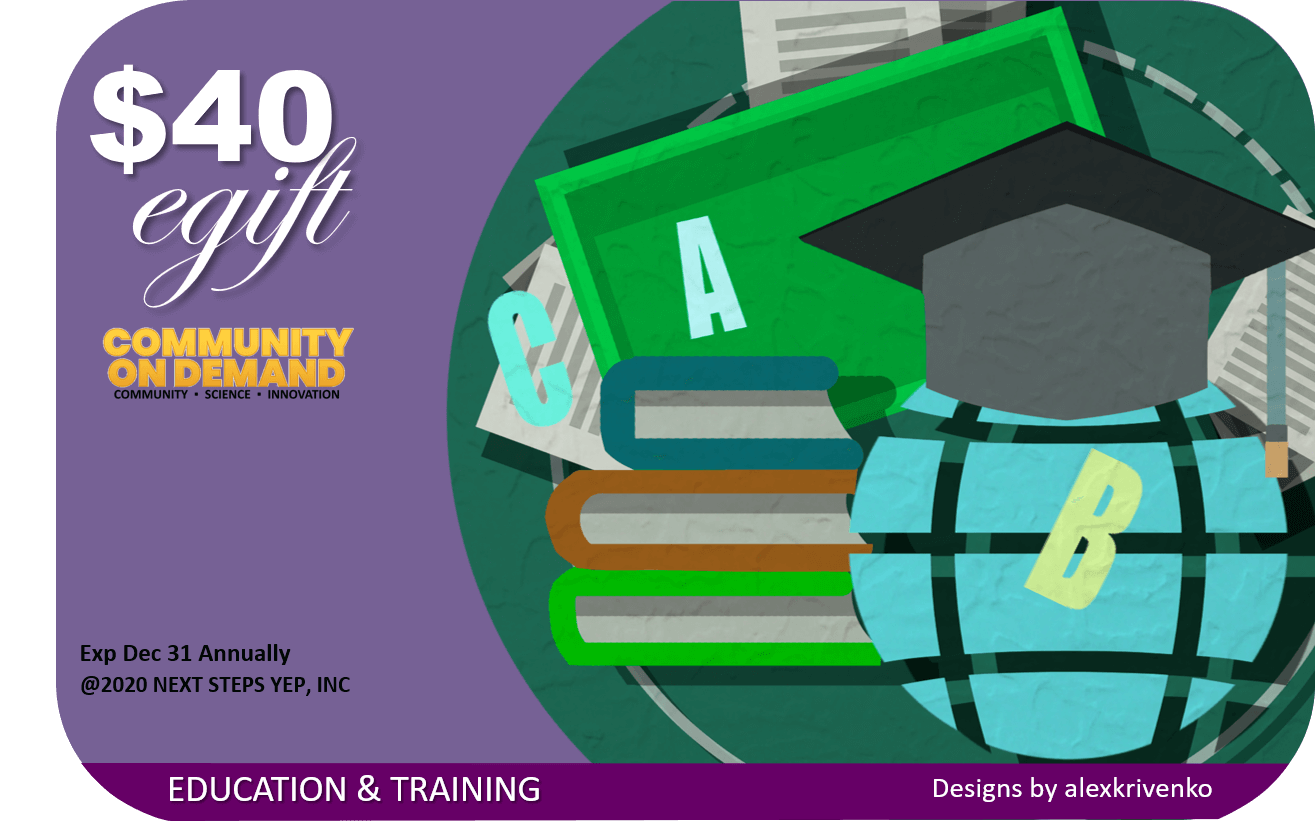
Film, Digital Media & Entertainment
Pathways
Film
Digital Media
Electric Home Entertainment Systems
Knowledge Areas
- Knowledge of transmission, broadcasting, switching, control, and operation of telecommunications systems.
- Knowledge of media production, communication, and dissemination techniques and methods. This includes alternative ways to inform and entertain via written, oral, and visual media, including multiple methods of access to the information provided.
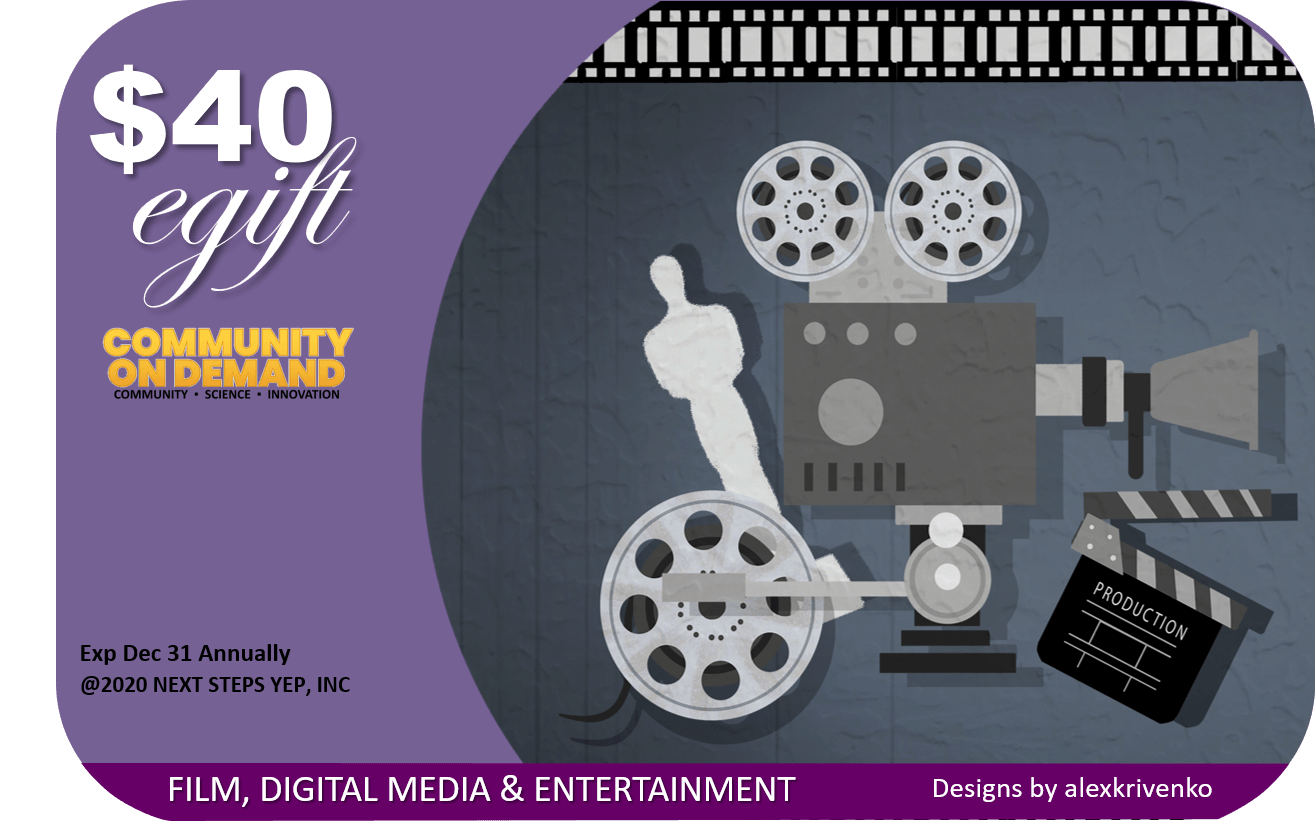
Finance
Pathways
Accounting
Banking Services
Business Finance
Insurance
Securities and Investments
Knowledge Areas
- Knowledge of economic and accounting principles and practices, the financial markets, banking, and the analysis and reporting of financial data
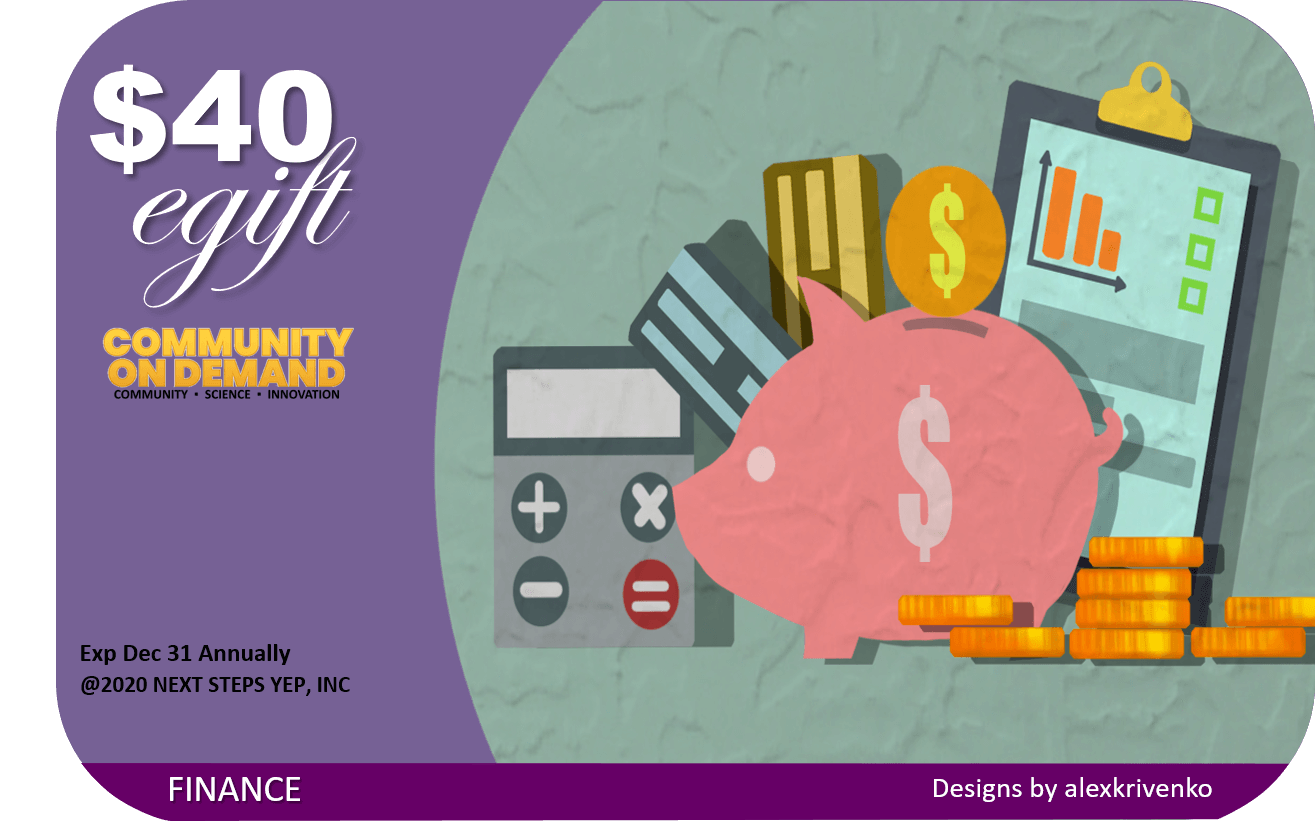
Government & Public Policy
Pathways
Foreign Service
Governance
National Security
Planning
Public Management and Administration
Regulation
Revenue and Taxation
Knowledge Areas
- Knowledge of relevant equipment, policies, procedures, and strategies to promote effective local, state, or national security operations for the protection of people, data, property, and institutions

Green Energy

Pathway
Building-Related Energy Efficiency
Recycling & Pollution Reduction
Environmental Conservation
Green Manufacturing
Renewable Energy Generation
Knowledge Areas
- Knowledge of alternative sources of renewable energies and how they impact the built environment.
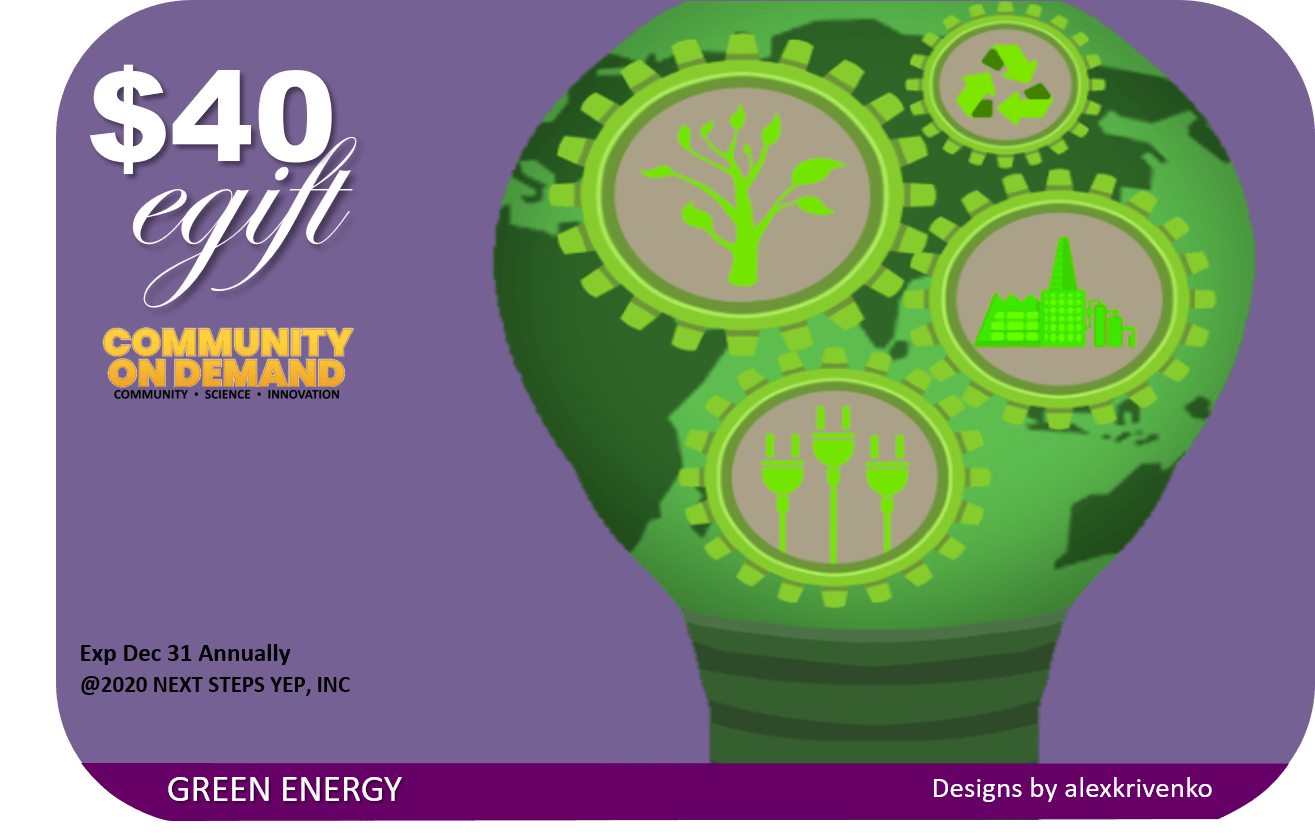
Health Sciences

Pathways
Biotechnology Research and Development
Diagnostic Services
Health Informatics
Support Services
Therapeutic Services
Knowledge Areas
- Knowledge of the information and techniques needed to diagnose and treat human injuries, diseases, and deformities. This knowledge includes symptoms, treatment alternatives, drug properties and interactions, and preventive health-care measures.
- Knowledge of human behavior and performance; individual differences in ability, personality, and interests; learning and motivation; psychological research methods; and the assessment and treatment of behavioral and affective disorders
- Knowledge of principles, methods, and procedures for diagnosis, treatment, and rehabilitation of physical and mental disabilities, and for career counseling and guidance.
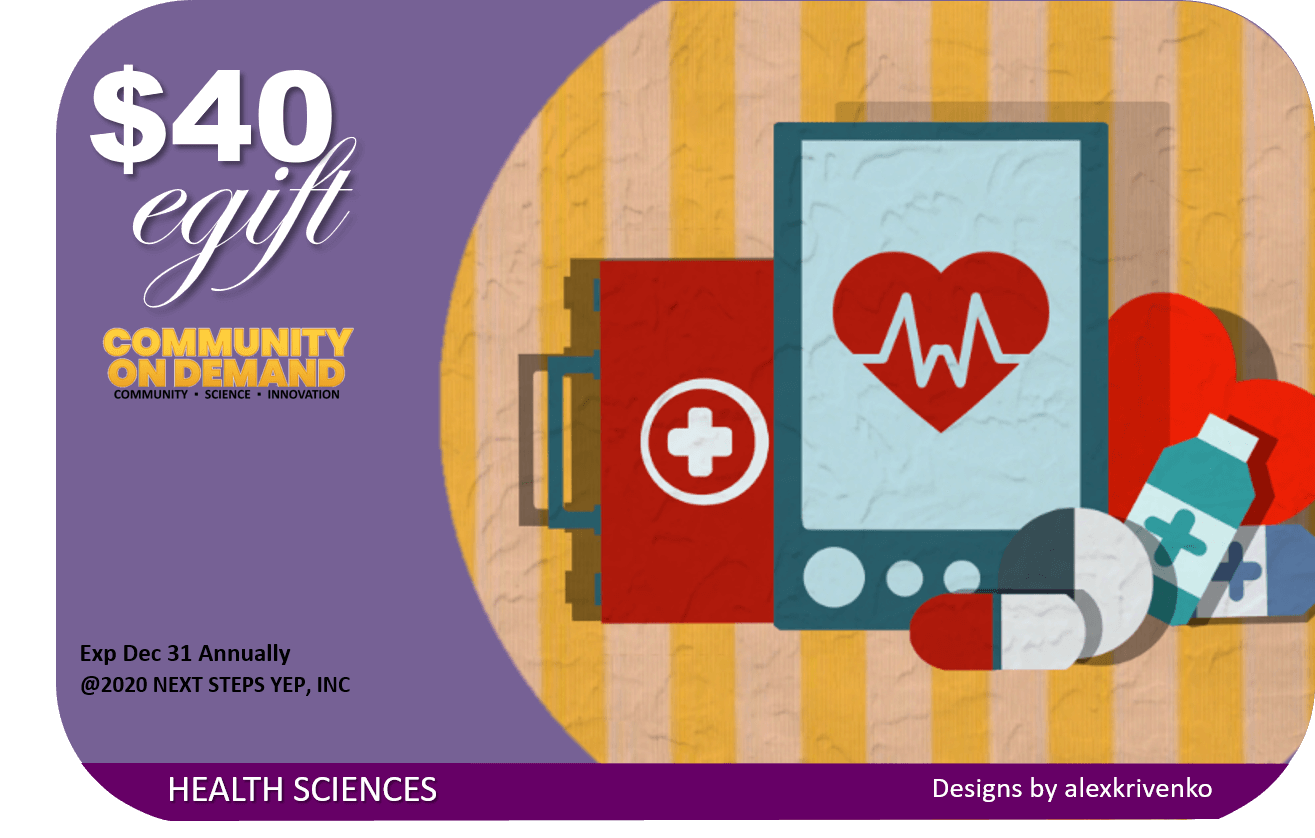
Hospitality & Tourism

Pathways
Restaurants & Food/Beverage Services
Lodging
Travel & Tourism
Recreation, Amusements & Attractions
Health, Safety and Environmental Management
Knowledge Areas
- Knowledge of the information, skills, and abilities needed in five key hospitality sub-sectors: Lodging; Destination Marketing and Management, Tourism and Travel Arrangement; Recreation, Amusements, and Attractions; and Meetings, Events, and Exhibitions Management
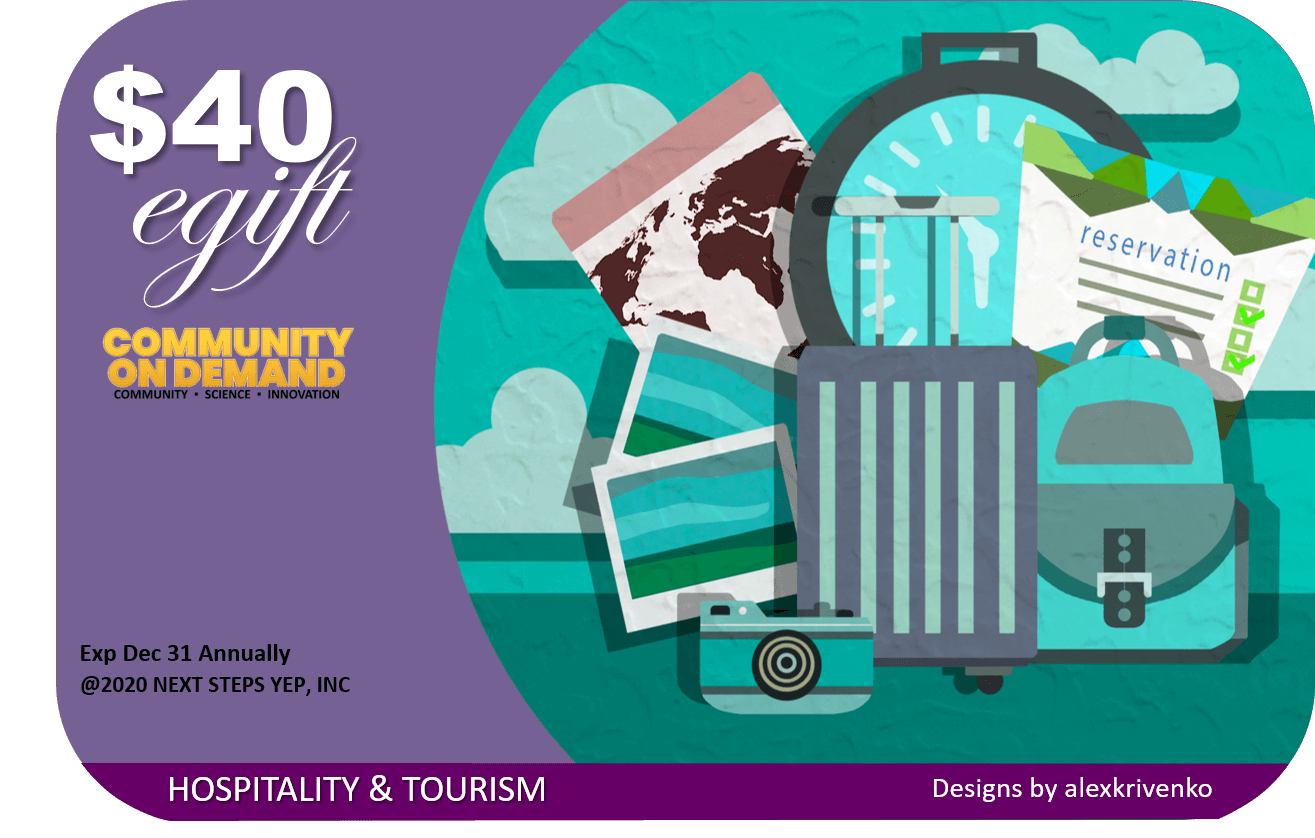
Human Services

Pathways
Early Childhood Development & Services
Counseling & Mental Health Services
Family & Community Services
Personal Care Services
Knowledge Areas
- Knowledge of principles and processes for providing customer and personal services. This includes customer needs assessment, meeting quality standards for services, and evaluation of customer satisfaction
- Knowledge of group behavior and dynamics, societal trends and influences, human migrations, ethnicity, cultures, and their history and origins.

Information Technology

Pathways
Information Support and Services
Network Systems
Programming and Software Development
Web and Digital Communication
Knowledge Areas
- Knowledge of circuit boards, processors, chips, electronic equipment, and computer hardware and software, including applications and programming

Law, Public Safety, Corrections and Security

Pathways
Correction Services
Emergency & Fire Management Services
Law Enforcement Services
Security & Protective Services
Knowledge Areas
- Knowledge of laws, legal codes, court procedures, precedents, government regulations, executive orders, agency rules, and the democratic political process
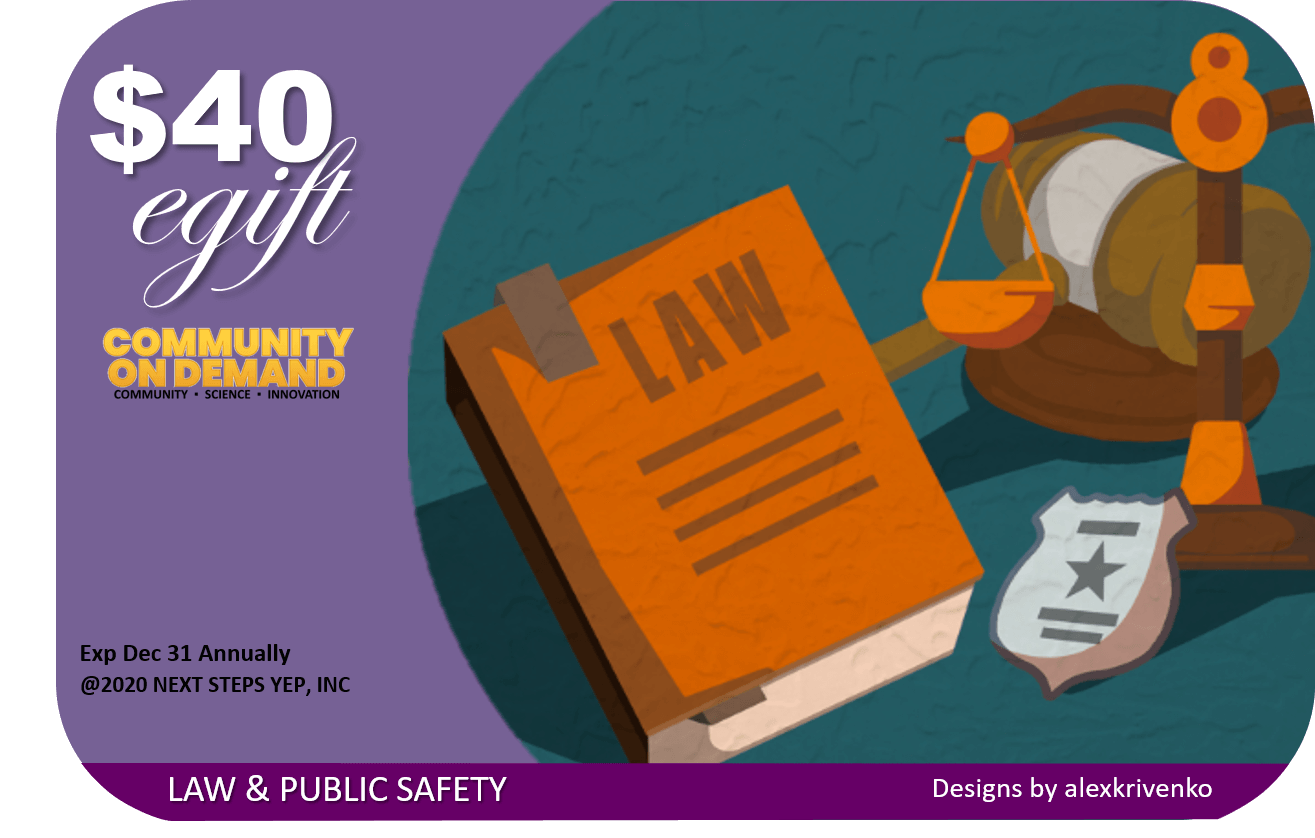
Manufacturing

Pathways
Production
Manufacturing Production Process Development
Maintenance, Installation & Repair
Quality Assurance
Logistics & Inventory Control
Health, Safety & Environmental Assurance
Knowledge Areas
- Knowledge of machines and tools, including their designs, uses, repair, and maintenance.
- Knowledge of raw materials, production processes, quality control, costs, and other techniques for maximizing the effective manufacture and distribution of goods.

Marketing

Pathways
Marketing Management
Professional Sales
Merchandising
Marketing Research
Knowledge Areas
- Knowledge of principles and methods for showing, promoting, and selling products or services. This includes marketing strategy and tactics, product demonstration, sales techniques, and sales control systems
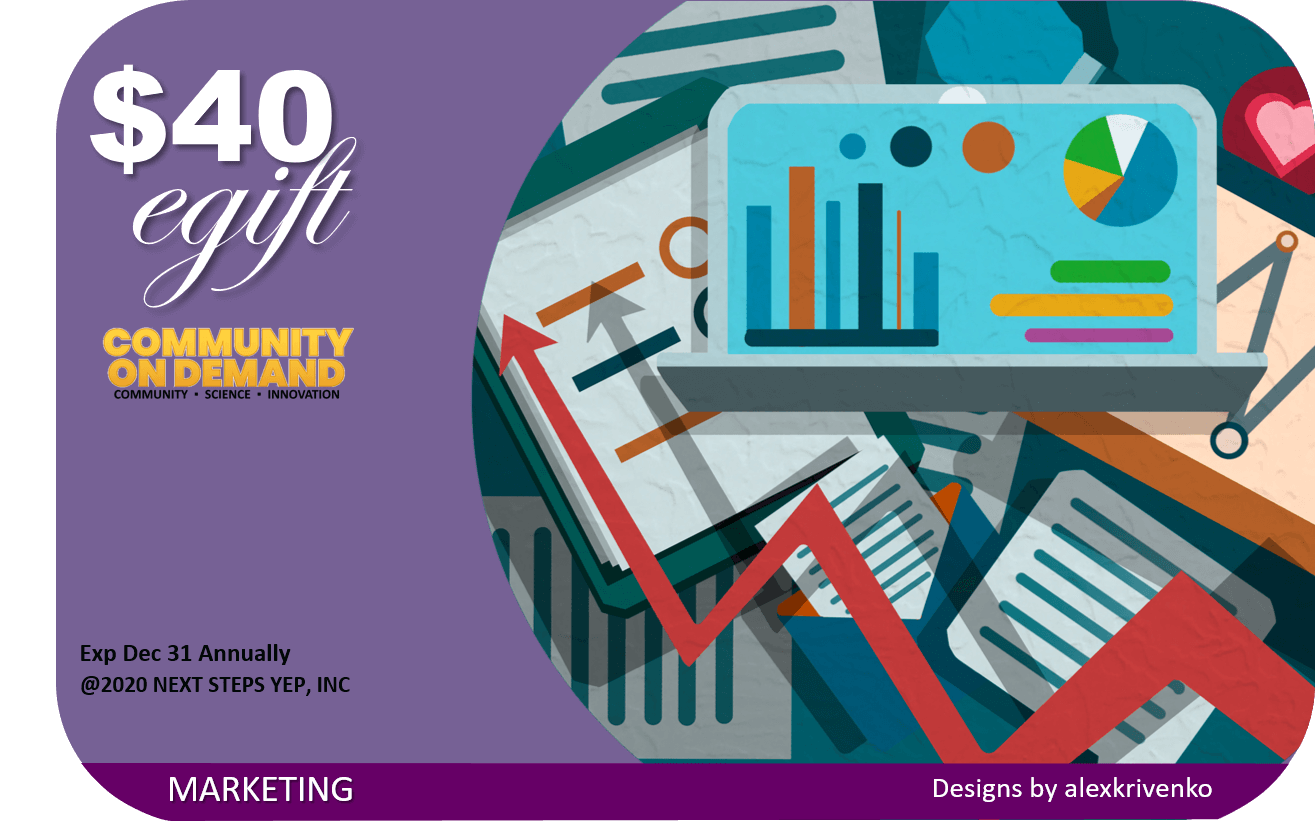
The STEAM Investigative Process

Pathways
Engineering and Technology
Science and Mathematics
Knowledge Areas
- Knowledge of the practical application of engineering science and technology. This includes applying principles, techniques, procedures, and equipment to the design and production of various goods and services
- Knowledge of arithmetic, algebra, geometry, calculus, statistics, and their applications
- Knowledge and prediction of physical principles, laws, their interrelationships, and applications to understanding fluid, material, and atmospheric dynamics, and mechanical, electrical, atomic and sub- atomic structures and processes
- Knowledge of the chemical composition, structure, and properties of substances and of the chemical processes and transformations that they undergo. This includes uses of chemicals and their interactions, danger signs, production techniques, and disposal methods
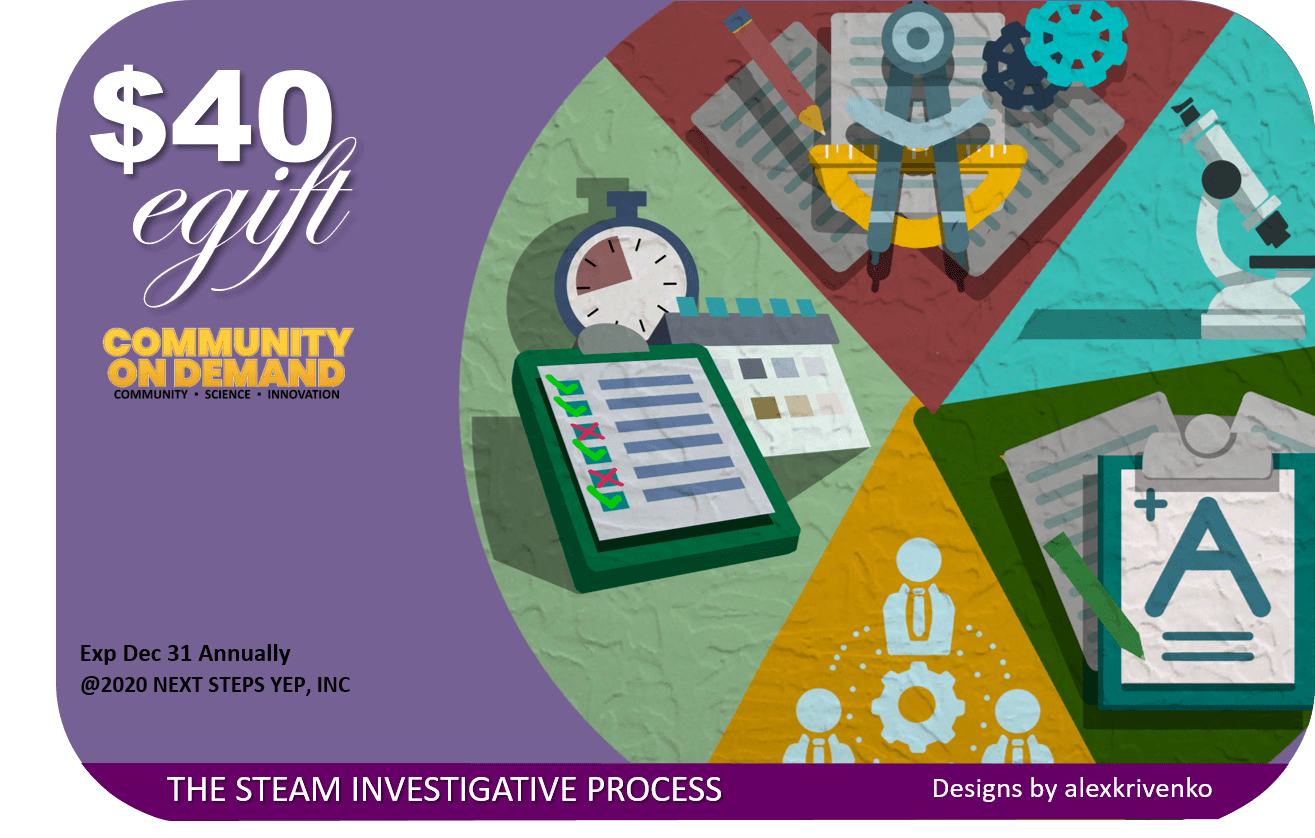
Transportation

Pathways
Transportation Operations
Logistics Planning & Management Services
Warehousing & Distribution Center Operations
Facility & Mobile Equipment Maintenance
Transportation Systems/Infrastructure Planning, Management & Regulation
Health, Safety & Environmental Management
Sales & Service
Knowledge Areas
- Knowledge of principles and methods for moving people or goods by air, rail, sea, or road, including the relative costs and benefits.
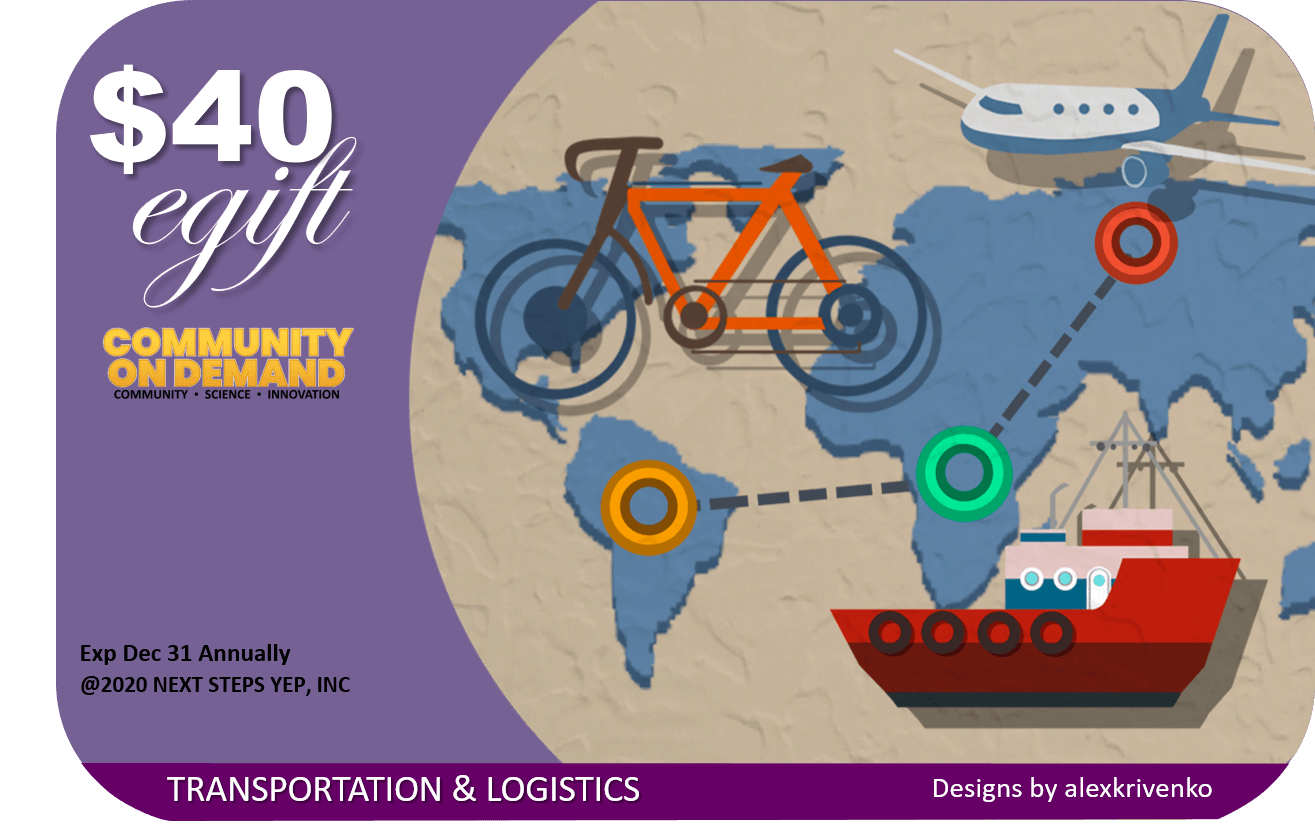
Micro-Certifications & STEAM Capability Reports
Industry-Recognized Credentials
NSOTA issues industry-recognized digital badges, micro-certifications and STEAM Capability Reports verify when a learner has demonstrated competencies of a specific skill.
This is done by submitting digital content (Proof Of Work Portfolios) that proves how they completed one or more of the service goals affiliated with each skill or a lesson within the Money Guide for Young Entrepreneurs Activity Workbook or Online Course.
Let Us Help Develop Your
Community On Demand™ Implementation Plan
Our Train-The-Trainer Professional Development Workshops provide step-by-step instructions on how to use our learning tools and materials so you can seamlessly integrate Community On Demand™ into your new or existing curriculum and training programs
Training
Professional Development
Evaluations
Skills Self-Assessment Worksheets
Gamification
Career Mapping Visualization Tools
Discovery
Work-based learning experiences
Teamwork
Critical thinking, problem solving and leadership
Community
Virtual engagement with STEAM Industry Professionals
Microcertification
Verification of skills development through applied learning

Our Veteran-Led Professional Development & Youth Leadership Training Sessions
STEAM Skills Self-Assessments for CTE Course Standard #1 (Part 1)
Demonstrates how Community On Demand™ visualizes the career mapping conversation and conducts skills self-assessments to track/measure employability
Capacity Building, Community Engagement & Business Development (Part 3)
Demonstrates how to use our signature Community Involvement Growth Strategy (CIGS) Model™ to address, reduce and/or eliminate socio-economic conditions that may be negatively impacting the local community
Enhanced Work-Based Learning & Career Development (Part 2)
Demonstrates how The Money Guide for Young Entrepreneurs™ uses enhances work-based learning experiences to strengthen leadership, teamwork and problem solving skills for college & career readiness
Junior Executive Management Team Leadership Workshops
Professional development training for youth and young adults to help them organize their people, places and things as they complete their STEAM Investigative Process.
Our Signature Training Models
The Community Involvement Growth Strategy (CIGS) Model™
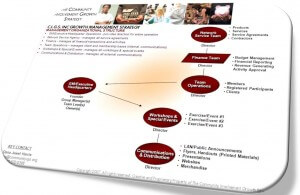 The Community Involvement Growth Strategy (CIGS) Model™ is an organizational development and communications system created by Dana Jewel Harris that helps learners, business owners and community stakeholders design capacity-building projects for purpose-built communities.
The Community Involvement Growth Strategy (CIGS) Model™ is an organizational development and communications system created by Dana Jewel Harris that helps learners, business owners and community stakeholders design capacity-building projects for purpose-built communities.
This easy-to-replicate project management system uses an internal organizational development structure to build leadership, people management, and event coordination skills. Through CIGS, learners are able to form a project management team, develop impact solutions, map out immediate and constant income streams, conduct real time exploration of high-wage service trades, protect their creative properties, create new business and career-building opportunities, and track their achievements. This combination of deliverables help learners have fun demonstrating to business and industry how they use their soft skills to solve real-world problems.
Leadership Training & Development
The CIGS Model governs the development and operational structure of Junior Executive Management Teams that operate Pop Shops and teaches them how to:
- defined the roles of six team management positions;
- organize growth development sessions with mentors;
- set financial goals,
- collect dues and membership fees;
- document, plan and execute special events, projects and promotions;
- update their organizational profiles, contribution values and leaderboard status;
- pitch and present the results of current, past and future impact solutions through networking opportunities.
Business Development
The CIGS Model teaches people how to project and manage growth by placing focus on the expansion of Community On Demand™ game play policies & procedures. Players learn how to develop and implement effective people management strategies for their JEM Teams and community networks by ensuring they have the right people, in the right places with the right skills, at the right time.
Special Events Management
Special Event management has always been the best way for NEXT Steps to teach learners how to apply soft skills and collaboration. The CIGS Model teaches JEM Team how to create, manage and promote special events (i.e,. business forums, health fairs, trade shows, expositions, music, business and esports competitions, workshops and concerts, etc.) as well as showcase the products, services and innovative ideas of our members, vendors, sponsors investors, and volunteers.
The Agricultural Technologies With Open Outdoor Designs (ATWOOD) Model™
 The Atwood Model™ is a land trust initiative for a hybrid L3C venture between The NEXT Steps Small Business Incubator & Youth Entrepreneur Program. It consists of independent, small, sustainable and social-justice oriented entrepreneurs that own and secure access to land, facilities, and infrastructure. It serves as the foundation for Program Related Investment in the Holistic Food System of the Community On Demand™ Creative Ecomomy.
The Atwood Model™ is a land trust initiative for a hybrid L3C venture between The NEXT Steps Small Business Incubator & Youth Entrepreneur Program. It consists of independent, small, sustainable and social-justice oriented entrepreneurs that own and secure access to land, facilities, and infrastructure. It serves as the foundation for Program Related Investment in the Holistic Food System of the Community On Demand™ Creative Ecomomy.
How It Started
ATWOOD is based on the the new business development process growers take to produce products and services each growing season. That process made the farm the perfect learning environment for using the ATWOOD Model™ as a youth-driven business strategy.
In 2009, Dana Jewel Harris acquired a 4.5 acre abandoned urban farm on Atwood Street (Atlanta, GA) with the idea of converting it into an outdoor classroom. She used her CIGS Model™ as a template to create The Agricultural Technologies With Open Outdoor Designs (ATWOOD) Model™ so she could equip children with the skills and language they needed to:
- survive a natural disaster
- increase their knowledge about where food comes from and how it is
grown - understand the science behind food production and the impact of food
consumption, and - explore the many wonderful and exciting career opportunities that exist
within the farm to table cycle.
Ms. Harris went on to create the Herb & Farm Summer Internships, SWOOM Farmer’s Market, The Community, Science & Innovation (CSI) Unit: Science Behind Our Food Young Chef Cooking Series, Community Connections Volunteer Program (with Hands On Atlanta) and the Junior Executive Management (JEM) Team Training Program. Through them, she was able to introduce over 300 careers within the agriculture, food and natural resources industry to more than 1,500+ students, volunteers, educators, community leaders and guests each year.
“My programs taught youth how to form project management teams, serve in leadership positions to manage the 14 activity areas of the ATWOOD urban farm, and manage our farmer’s markets.”
Her Atwood community garden models also inspired youth to replicate her efforts as some designed and installed their own backyard/school
gardens and outdoor classrooms. Others were able to use their experiences to enter into college or get jobs.
The STEAM Investigative Process™
 Inspired by the “Captain America: Civil War” Avengers movie, Ms. Harris created The STEAM Investigative Process as a 21st Century STEAM-based community engagement learning tool to highlight socio-economic conditions and problem areas within communities. She wanted to demonstrate how learners, business owners and community stakeholders could develop land use strategies that increased accountability in managing the costs and resources required to sustain and/or rebuild their communities from collateral damage, supernatural phenomena or negative socio-economic conditions (i.e. flooding, economic downturn, disruption of social services, blight/neglect, poverty, high crime, vandalism, food insecurities, natural resource contamination, etc.)
Inspired by the “Captain America: Civil War” Avengers movie, Ms. Harris created The STEAM Investigative Process as a 21st Century STEAM-based community engagement learning tool to highlight socio-economic conditions and problem areas within communities. She wanted to demonstrate how learners, business owners and community stakeholders could develop land use strategies that increased accountability in managing the costs and resources required to sustain and/or rebuild their communities from collateral damage, supernatural phenomena or negative socio-economic conditions (i.e. flooding, economic downturn, disruption of social services, blight/neglect, poverty, high crime, vandalism, food insecurities, natural resource contamination, etc.)
The STEAM Investigative Process provides supplemental instruction in math, science, engineering, and technology through creative measures that employ active engagement in experimental research, community service projects, urban agriculture and youth entrepreneurism. With a focus on social entrepreneurism, eco- and agritourism, learners, business owners and community stakeholders are taught how to use The STEAM Investigative Process to:
- Conduct STEAM-based investigative research and development activities to specifically identify measurable project goals, outcomes and outputs
- utilize the Community Involvement Growth Strategy (CIGS) Organizational Model to bring learners, business owners and community stakeholders together for the purpose of collaboratively identifying and reducing environmental health risks (i.e. promoting clean air, global climate change, clean and safe water, land preservation and restoration, healthy communities and ecosystems, compliance and environmental stewardship, etc.)
- Coordinate special events, training sessions, educational workshops and demonstrations to describe the environmental problems and the nature of pollution that may be creating health and/or environmental impacts related to toxic pollutants and environmental concerns
- Engage in community service activities that support urban agriculture, environmental and other STEAM-based industries
- Create work plans to directly address the community’s needs
- Create new inventions and technologies through the introduction of STEAM careers
- Adopt sustainable practices for community development to improve their and their family’s quality of life;
- Develop and launch new business ventures to demonstrate how to use green industry ideas and technologies to address, reduce and/or eliminate socio-economic conditions that are negatively impacting their communit
Current Trends In
Serious Game Play
The growth rate for serious games in the higher education and tertiary segment is a healthy 15.4%.

